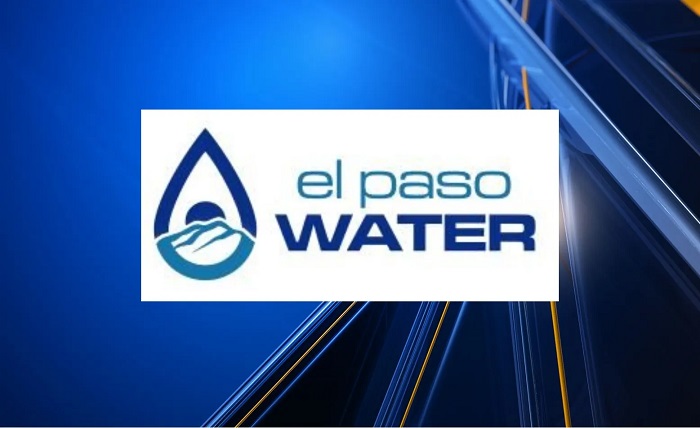El Paso Water Utilities: A Leader in Water Conservation and Innovation

El Paso is a city in Texas that lies on the border with Mexico and has a population of about 680,000 people. El Paso is also a city that faces many challenges when it comes to water supply and demand. El Paso is located in a desert region that receives only about 9 inches of rainfall per year, and has a growing population that consumes about 130 gallons of water per person per day. El Paso also shares its water resources with neighboring communities in Texas, New Mexico, and Mexico, and has to comply with various treaties and agreements that regulate the use and allocation of water.
To meet these challenges, El Paso Water Utilities (EPWU), the public utility that provides water and wastewater services to the city, has developed and implemented a comprehensive and innovative water management strategy that aims to conserve, diversify, and optimize its water resources. EPWU is widely recognized as a leader in water conservation and innovation and has received numerous awards and accolades for its achievements. In this blog post, we will explore some of the key aspects of EPWU’s water management strategy and how it benefits the city and its residents.
Water Conservation
Water conservation is the cornerstone of EPWU’s water management strategy. EPWU has implemented various programs and policies to reduce water consumption and waste, such as:
- Water pricing: EPWU charges customers based on the amount of water they use, and applies higher rates for higher consumption levels. This encourages customers to use water more efficiently and save money on their bills.
- Water restrictions: EPWU imposes mandatory water restrictions during the summer months, when water demand is highest. Customers are allowed to water their lawns only on certain days and times, depending on their address. Customers who violate the restrictions are fined or have their water service disconnected.
- Water education: EPWU educates customers about the importance of water conservation and how to use water wisely. EPWU provides tips, tools, and resources on its website, such as a water calculator, a leak detection guide, a landscape guide, and a rebate program for installing water-efficient appliances and fixtures.
- Water audits: EPWU offers free water audits to customers who want to identify and fix leaks, improve irrigation systems, or reduce water consumption. A certified water auditor visits the customer’s property and provides recommendations and assistance.
- Water metering: EPWU installs smart meters that measure and record water usage in real time. Customers can access their water usage data online or through a mobile app, and receive alerts if there are any leaks or abnormal usage patterns.
These conservation efforts have resulted in significant water savings for EPWU and its customers. According to EPWU, the per capita water consumption in El Paso has decreased from 205 gallons per day in 1985 to 130 gallons per day in 2019. This means that El Paso uses less water today than it did 35 years ago, despite having a larger population.
Read more about boxbraids.net
Water Diversification
Water diversification is another key aspect of EPWU’s water management strategy. EPWU has developed and expanded its sources of water supply to ensure reliability and sustainability, such as:
- Surface water: EPWU obtains surface water from the Rio Grande, which flows through El Paso from January to June. EPWU has built dams, reservoirs, canals, and pipelines to store and deliver surface water to its customers. EPWU also has rights to receive surface water from Elephant Butte Reservoir in New Mexico, which is part of the Rio Grande Project.
- Groundwater: EPWU obtains groundwater from various aquifers under El Paso County, such as the Hueco Bolson, the Mesilla Bolson, and the Westside Bolson. EPWU has drilled over 100 wells to pump groundwater to its customers. EPWU also monitors and manages the groundwater levels and quality to prevent overexploitation and contamination.
- Reclaimed water: EPWU reclaims wastewater from its treatment plants and reuses it for various purposes, such as irrigation, industrial cooling, environmental enhancement, and aquifer recharge. EPWU has built a purple pipe system that delivers reclaimed water to customers who need non-potable water. EPWU also operates a wetlands park that uses reclaimed water to create a habitat for wildlife.
- Desalinated water: EPWU operates the largest inland desalination plant in the world, which treats brackish groundwater from the Hueco Bolson. The plant produces up to 27.5 million gallons of fresh water per day, which is blended with other sources of water supply. The plant also produces salt as a byproduct, which is sold for industrial use or disposed of safely.
- Advanced purified water: EPWU is planning to build an advanced purification facility that will treat reclaimed water to drinking water standards. The facility will use multiple barriers of treatment, such as microfiltration, reverse osmosis, ultraviolet disinfection, and advanced oxidation. The facility will produce up to 10 million gallons of purified water per day, which will be injected into the Hueco Bolson aquifer and later pumped out for potable use.
These diversification efforts have enabled EPWU to increase its water supply and reduce its dependence on any single source of water. According to EPWU, the percentage of surface water in its water supply mix has increased from 5% in 1985 to 50% in 2019, while the percentage of groundwater has decreased from 95% to 50%. This means that EPWU has reduced its groundwater pumping by half, which helps preserve the aquifers for future generations.
Water Optimization
Water optimization is the final aspect of EPWU’s water management strategy. EPWU has invested in technology and infrastructure to improve the efficiency and quality of its water delivery and treatment, such as:
- Water distribution: EPWU maintains and upgrades its water distribution system, which consists of over 2,600 miles of pipes, 60 storage tanks, and 40 pumping stations. EPWU uses hydraulic modeling, leak detection, pressure management, and pipe replacement to optimize the water flow and pressure in the system. EPWU also uses smart technology, such as remote sensors, automated valves, and supervisory control and data acquisition (SCADA) systems, to monitor and control the system remotely.
- Water treatment: EPWU operates five water treatment plants that treat surface water and groundwater to meet or exceed the federal and state drinking water standards. EPWU uses various processes, such as coagulation, flocculation, sedimentation, filtration, disinfection, and corrosion control, to remove contaminants and improve the aesthetic quality of the water. EPWU also tests the water quality at various points in the system to ensure compliance and safety.
- Wastewater collection: EPWU maintains and upgrades its wastewater collection system, which consists of over 2,200 miles of pipes, 85 lift stations, and 10 stormwater ponds. EPWU uses sewer cleaning, inspection, rehabilitation, and replacement to prevent blockages, overflows, and leaks in the system. EPWU also uses smart technology, such as remote sensors, automated valves, and SCADA systems, to monitor and control the system remotely.
- Wastewater treatment: EPWU operates four wastewater treatment plants that treat wastewater to meet or exceed the federal and state wastewater standards. EPWU uses various processes, such as screening, grit removal, primary clarification, biological treatment, secondary clarification, filtration, disinfection, and biosolids management, to remove pollutants and pathogens from the wastewater. EPWU also tests the wastewater quality at various points in the system to ensure compliance and protection.
These optimization efforts have resulted in improved performance and customer satisfaction for EPWU and its customers. According to EPWU, the water loss rate in its distribution system has decreased from 18% in 1989 to 8% in 2019. This means that EPWU has reduced its water loss by more than half, which saves money and resources. EPWU also reports that it has achieved a 99.9% compliance rate with the drinking water standards and a 100% compliance rate with the wastewater standards. This means that EPWU delivers high-quality water and wastewater services to its customers.
Read more about boxbraids.net
Conclusion
El Paso Water Utilities is a public utility that provides water and wastewater services to El Paso, Texas. El Paso is a city that faces many challenges when it comes to water supply and demand. To meet these challenges, El Paso Water Utilities has developed and implemented a comprehensive and innovative water management strategy that aims to conserve, diversify, and optimize its water resources. El Paso Water Utilities is widely recognized as a leader in water conservation and innovation, and has received numerous awards and accolades for its achievements. El Paso Water Utilities is an example of how a utility can overcome water challenges and provide sustainable and reliable water services to its customers.
Read more about Choosing Choice Home Warranty



